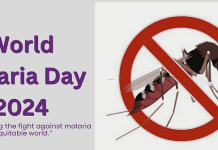In this exclusive interview with Pharmanews, Pharm. Olanrewaju Jonathan Ofi, chairman, Association of Community Pharmacists of Nigeria (ACPN), Ekiti State Chapter discusses a number of issues relating to community pharmacy practice in Ekiti State. The managing director of Lanre & Lanre Pharmacy and Stores, Ado-Ekiti, also enumerated the multifaceted benefits of the chain pharmacy concept, as well as why he thinks the Pharmacists Council of Nigeria (PCN) should halt issuing of licences to patent medicine dealers in urban areas of the state. Excerpts:
Tell us about your pharmacy – how was it at the beginning?
After my internship stints at the State Specialist Hospital, Ondo, Central Medical Stores, Ado Ekiti and Ondo State Ministry of Health, Pharmacy Division, Akure, where I spent four months respectively, I was offered employment at the State Specialist Hospital, Ondo. But I was only able to work there briefly because I got a better offer from a particular community pharmacy called Glory Pharmacy and Stores, Ondo State then. So, I was at Glory Pharmacy and Stores as a superintendent pharmacist for four years before I started my own Pharmacy, Lanre & Lanre Pharmacy & Stores in 1993.
At the beginning, it was interesting because, despite the fact that Petroleum Trust Fund (PTF) drugs were available in the hospitals, prescriptions were still coming and people were patronising us because of our location. Patients had confidence in us. They believed they could always buy genuine and quality drugs from us; so the patronage then was high.
However, in 2008, due to the road dualisation exercise embarked upon by the then state government, part of my pharmacy was demolished; and for good eight months, the pharmaceutical business was paralysed and some of the drugs expired. I was devastated.
Not long after, through the grace of God, I was able to raise some money and I spent so much on renovation with the approval of the state government. Unfortunately, however, another government came in 2011 and demolished the whole complex with the excuse of wanting to plant flowers to beautify Ado Ekiti, the state capital. Sadly, till today the flowers have not been planted.
Really, it is the grace of God that has made us to remain in existence and is still sustaining the pharmacy up till today.
It’s been a year since you became the chairman of ACPN in Ekiti State, how would you describe the journey so far?
The journey has not been easy, but in the area of achievements, we have been able to bring ACPN into the limelight through our various activities in the state, especially our monthly meetings. We are now visible and we have good working relationship with our parent body, the PSN.
Admittedly, there were some major challenges that I faced when I assumed office, including lack of finance and low turn-out of members at monthly meetings. But I am thankful to God who has been sustaining us and I also appreciate my members for the trust they have in me and their cooperation so far.
It has always been my policy since I assumed this position to ensure that names and contacts of all members are included in the minutes of our monthly meetings, so as to regularly keep in touch with them and constantly furnish them with information about the association from time to time.
In terms of finance, ACPN-Ekiti is presently not owing a dime, as we have cleared all our debts that were outstanding before we came in. Another major issue is that of pharmacists from neighbouring states who wanted to come to Ekiti State to practise dual registration, that is, “register and go”. To prevent this, we now make every pharmacist registering an outlet to sign a printed undertaking that they will attend the monthly meetings and possibly reside in the state. This is to allow them work for the money they earn and to discharge their professional duties as the superintendent pharmacists at their duty posts. To God be the glory we are moving the profession and the association forward in the state.
What is your assessment of community pharmacy practice in Ekiti?
Community practice in Ekiti is making tremendous progress. We now have pharmacies that are owned and managed by pharmacists in the state and they are doing well – unlike what obtained in the past, when we used to have numerous pharmacies owned by non-pharmacists flourishing at the expense of the professionals. There is a better future for community pharmacy in the state, especially in the rural areas where there are no pharmacy outlets.
What would you say are the peculiar challenges facing community pharmacy practice in the state?
Access to high quality, efficacious and safe medicines remains a major concern worldwide. In Ekiti State, pharmaceutical premises are concentrated (about 70 per cent) mainly in the capital town, Ado-Ekiti. We are therefore urging and appealing to pharmacists to open pharmacies in the rural areas of the state also, so as to fulfill the global requirements of pharmaceutical care.
More importantly, professional indiscipline and lack of adherence to ethical issues (such as abetting charlatans) remain a big challenge. Also, there is the issue of the Rx sign, which is a symbol for quality products and excellent professional pharmaceutical care and service, but which some outlets are yet to embrace. This is quite worrisome because the symbol is part pf what distinguishes us from charlatans.
I also think community pharmacy outlets should be restricted to pharmacists, so as to prevent the issue of price competition. We have found out that some non-pharmacist-owned retail outlets sell at wholesale prices, thereby attracting more customers to their premises. I would equally advise existing community pharmacies to work on improving the facilities in their premises, so as to make their premises befit a standard pharmacy outlet and not a patent medicine shop.
How lucrative is community pharmacy business in the state?
Community pharmacy business is very lucrative in Ekiti. As community pharmacists, we have many areas to cover in the sub-urban centres, as the capital city is saturated with patent and proprietary medicine vendors who outnumber community pharmacists.
Let me also quickly say that the PCN must stop issuing patent medicine licences in urban areas and the capital town. Also, the distance between two patent medicine shops should be increased to 800 metres in radius and 1000 metres to a pharmacy.
The chain pharmacy idea is becoming increasingly popular, how do you see the development?
It is a good development in the country because this is a system where a corporate organisation owns more than two stores with pharmacists in charge. It is a good development since pharmacists will always be on duty to attend to patients and to be in personal control of the premises. More pharmacists will be employed and this will reduce unemployment in Nigeria. Also, patients and the general public will be willing to patronise pharmacies where experts are available to provide safe medicine and pharmaceutical care.
In addition, there will be no room for any pharmacist to condone or assist in the manufacture, importation, distribution, sales or dispensing of drugs which are not of good quality. The ‘register and go’ syndrome will also be discouraged.
Furthermore, the concept will stimulate healthy competition among pharmacists. It will motivate existing community pharmacies to improve their facilities and the quality of their services, thereby enhancing community pharmacy practice in Nigeria. Very importantly, though, government should allow only indigenous pharmacists to establish chain pharmacies for now.
You must have set some objectives for yourself at the beginning of your tenure, how far have you achieved them?
I took over as chairman a year ago and, while some of our objectives are still in the pipeline, others are presently being implemented. Our objectives include a programme called ‘Access to Pharmacists is Access to Health’. It is a programme in which access to medicine in the sub-urban and rural areas will be encouraged. This is to uphold pharmacy best practices by spreading the tenets to the rural areas to influence access to good medicine and pharmaceutical care.
Also, to avoid this profession being hijacked by charlatans, the regulatory authorities will be supported to carry out their functions effectively and efficiently. We are ready to partner effectively with regulatory bodies like NAFDAC, NDLEA, PCN, PIC and others in their anti-counterfeiting efforts.
Community pharmacists will also try all possible areas to invest through partnership. This is to help saturate distribution channels with professionals in the rural areas through personal cash savings, cooperative loans, supplier credits, loans from financial institutions with little interest.
Community pharmacists will equally be encouraged to participate in public health programmes such as the National Programme on immunisation and the Roll Back Malaria initiatives, as well as in policy formulation and implementation in the state.
What is your assessment of the health care sector in Ekiti?
Health care delivery should be a teamwork because every professional has his or her role to play, and this role should be patient-focused. Unfortunately, the pattern in the state is the same as at the federal level.
A major challenge facing pharmacy profession in Nigeria is the problem of drug counterfeiting, how can this challenge be surmounted?
The National Drug Distribution Guidelines (NDDG) is one programme that if well implemented, will solve the problem of fake and counterfeit drugs in the country. All pharmacists should support it and ensure it is well implemented so that it will benefit the professionals, as well as the general populace.
Also the state government should fund the State Task Force on fake and unwholesome products, while the regulatory authorities should carry out their functions effectively and efficiently.















tadalafil 40 mg daily: http://tadalafilonline20.com/ generic tadalafil united states